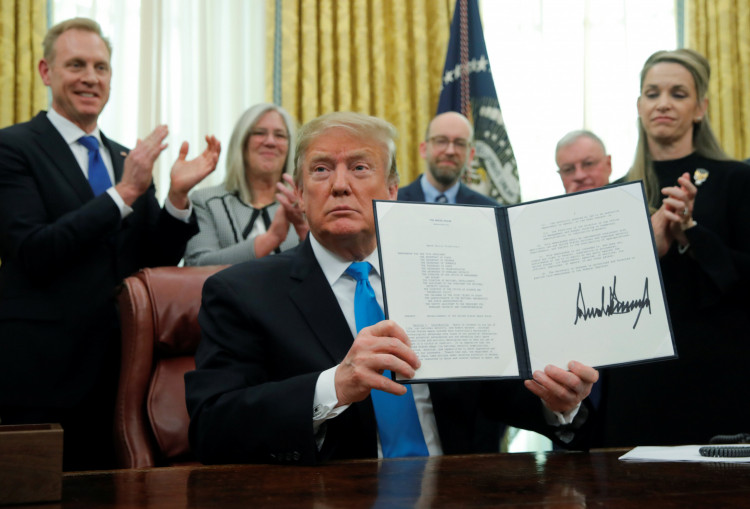President Donald Trump has now taken another step forward in his plan to build a new branch of the military dedicated to defending the country from threats in space. The new directive, which was recently signed by the president, is the first process to begin the establishment of the United States' Space Force.
The directive itself is an order to the Defense Department to begin establishing a structure of authority for the new Space Force. The directive also asks Congress to propose a budget for the Space Force, which will be included in the president's fiscal year 2020 budget. The official sixth branch of the United States armed forces will still be overseen by the Air Force, similar to how the Marines are under the Navy.
Trump initially wanted to the Space Force to be a separate branch, claiming that the Air Force was simply not doing enough to protect the country from threats that originated from space. However, his plan was met with a lot of resistance, with some claiming that it would be too complicated to build a separate branch of the military. Shortly after Trump proposed the idea, Vice President Mike Pence announced that he wanted Congress to allocate US$8billion for the new Space Force and new orbital security systems.
According to the proponents of the Space Force directive, the United States hasn't really been paying much attention to securing its place in space when compared to Russia and China. The directive states that the country's "adversaries" are simply advancing their space capabilities too quickly and the United States needs to catch up in developing ways to use space in future crisis or conflict. Trump mentioned during the signing that whether we get along with the nation's enemies, "they're already up in space."
The United States currently has a number of departments that deal with projects in space. This includes departments that oversee the launching of satellites for GPS, communications, and surveillance. However, Trump believes that a separate entity is needed to ensure the safety and security of the country in that particular frontier.
In the next few months, Congress will need to decide if it will act on the directive via a congressional approval. The debate is still on if the new branch of the military is indeed necessary. The bigger issue will likely stem from the funding details for the proposed branch in the 2020 budget. Critics of the proposal have argued that the Space Force may end up militarizing space, which may happen if the focus of the branch becomes more on offense rather than defense.






